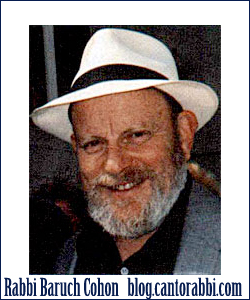This week we will read a section called Rey See in the Book of Deuteronomy chapters 11-16, comprising the second of Moses farewell speeches. He starts by telling his people: See, I place before you today a blessing and a curse. The blessing if you follow G-ds commandments that I give you, and the curse if you do not follow them but leave the path that I charged you to take.
Among those commandments we find some warnings that we might call extreme. For example, how to treat a false prophet. How to react to a member of your own family who leaves the faith and invites you to come along. What to do about an entire city that decides to practice idolatry. In all such cases, the penalty is death.
Hardly sounds like a religion of love and justice, does it? It even reminds us of some current reports about fatal fatwas pronounced against prominent ex-Muslims. And who knows how many humble victims of similar fatwas we dont hear about.
Torah commentators deal carefully with these commands to violence, as when Moses says Your hand shall be first against him (the apostate) and finally the hand of all the people. Rashi and others insist that the violator first had to stand trial, and only if found guilty would he be killed. Rabbi J. Hertz (former Chief Rabbi of England) points out that Jewish history does not record a single instance of punishment for religious seduction by a false prophet or a member of ones family. Regarding a disloyal city, the Torah text itself warns the people who destroy that city to take no spoils. This is not to be a venture for profit. This is not the Inquisition which confiscated the property of its victims. And the Tosefta states: The destruction of a whole community because of idolatry never occurred nor will it ever occur. The sole purpose of the warning is that it should be studied and one might receive a reward for such study.
Study, indeed. If we studied our heritage more and understood it better, we might find ourselves more loyal to its message, and have fewer false prophets, fewer intimate seducers, and fewer rebel communities.
Perhaps we need to ask who are the real sufferers in cases of disloyalty to the faith and desertion from the community? Over and again we hear that while we lost 6 million in the Holocaust, we lost at least that many since then, to assimilation and conversion. Leaving figures aside, we can see a decline in Jewish commitment and a weakening of Jewish education, particularly in the non-Orthodox population. Seeing the advances in genetic science, we might predict a time when only your DNA will prove whether you have any connection to the Jewish people. Maybe the idolaters or secularists or apostates or intermarrieds among us are the real sufferers. And they dont even know what they are missing all the wonderful color and flavor of Jewish life.
They deprived themselves of the blessing if you follow the mitzvos that I command you today.
No, no one will judge them and kill them. In fact, many people stand ready to welcome them back. As the prophet Isaiah sang in this weeks Haftorah: All your children shall be taught of the L-rd, and great shall be the peace of your children.


